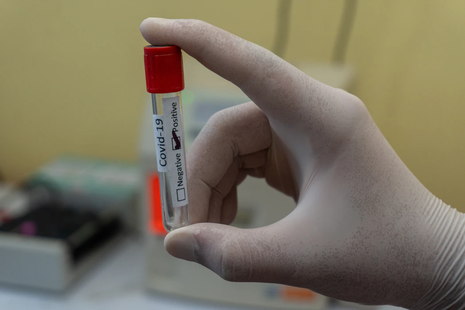New ethical framework for Covid-19 screening based on Cambridge students and staff
Cambridge-based THIS Institute has produced an ethical framework for student asymptomatic testing programmes

The Healthcare Improvement Studies (THIS) Institute has published an ethical framework for higher education institutions to follow when implementing asymptomatic screening programmes for their students.
THIS is a Cambridge-based institute which carries out research on how to improve the quality and safety of healthcare.
THIS Institute used their online research platform, Thiscovery, to question over 200 students and staff at the University of Cambridge about the asymptomatic COVID-19 testing programme.
The research aimed to identify “influences on participation, barriers or concerns about the programme, and views on ethical considerations.” The information gathered through online questionnaires and interviews, coupled with “expert ethical and legal analysis”, was used to produce the ethical guidelines.
The framework highlights nine key considerations that higher education institutes can use when implementing testing programmes. These include “enabling isolation”, “benefits, harms and opportunity costs” and “communication.”
The framework details several practical recommendations and illustrative examples in each of the nine key areas.
The framework recommends that adequate support be put in place at “individual and household level” for isolating students. The report suggests that institutions could listen to students, identify challenges, and then organise “practical, psychological, social and educational” support.
Another area considered by the framework is the “benefit, harm and opportunity cost” of an asymptomatic screening programme. The framework highlights that institutions must be “attentive to issues of equality, diversity and inclusion”, and stress that action should be taken to mitigate the adverse effects on “groups who may be disproportionately affected” by isolation.
Alongside the framework, THIS Institute has produced a checklist to enable higher education institutions to systematically work through the key points.
Professor Mary Dixon-Woods, Director of THIS Institute, said: “Higher education institutions must be certain that they can deliver asymptomatic COVID-19 testing programmes for students that are responsive to new evidence, policy and guidance, pandemic conditions, and views of their students and staff.”
Dixon-Woods added that the framework will support “good organisational decision-making around implementing testing programmes.”
Dr Caitriona Cox, NIHR Academic Clinical Fellow at THIS Institute and project lead, hopes that the framework and checklist will act as “valuable and timely resources for higher education institutions seeking ethically sound ways to keep people safe and support public health efforts.”
The University’s pooled asymptomatic screening programme has been running since the start of Michaelmas term 2020, and around 2000 tests are carried out per week.
80% of eligible students are participating in the programme, and Pro-Vice-Chancellor Professor Graham Virgo believes it will make it “easier” to welcome back students in the Easter term as they can quickly “fit into the testing regime”.
 News / CUP announces funding scheme for under-represented academics19 December 2025
News / CUP announces funding scheme for under-represented academics19 December 2025 News / Cambridge welcomes UK rejoining the Erasmus scheme20 December 2025
News / Cambridge welcomes UK rejoining the Erasmus scheme20 December 2025 Comment / Yes, I’m brown – but I have more important things to say22 December 2025
Comment / Yes, I’m brown – but I have more important things to say22 December 2025 News / SU reluctantly registers controversial women’s soc18 December 2025
News / SU reluctantly registers controversial women’s soc18 December 2025 Film & TV / Timothée Chalamet and the era-fication of film marketing21 December 2025
Film & TV / Timothée Chalamet and the era-fication of film marketing21 December 2025









